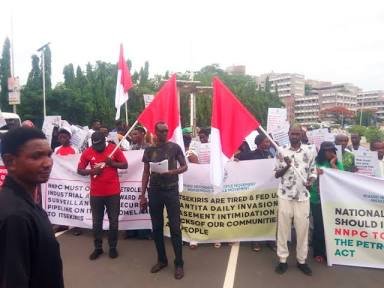TWO WATER TREATMENT PLANTS UNDERGOING MAJOR REHABILITATION CAUSES PARTIAL WATER SUPPLY DISRUPTION IN FCT

The Minister of the Federal Capital Territory (FCT), Nyesom Wike, has explained that the partial disruption of water supply in Abuja city centre and some satellite towns is due to major rehabilitation works on two of the four water treatment plants operated by the FCT Water Board.

Senior Special Assistant on Public Communications and Social Media, Lere Olayinka, in a statement, said water supply to residents will be rationed for a period of two weeks as only two water treatment plants will be in use, while the other two are undergoing rehabilitation. “Residents are therefore urged to store enough water to cater for their needs during this period as supply will be rationed,” Olayinka said.
The rehabilitation works, which have reached an advanced stage on Phases 1 and 2, involve replacing and reinstalling electro-mechanical equipment, necessitating a total shutdown of the two interconnected plants. Although Phases 3 and 4 water treatment plants are operational, they cannot meet the full demand of the populace, resulting in partial disruptions in supply. Lere Olayinka assured that SCC Nigeria Limited is working 24/7 to conclude the works before the scheduled time.
To mitigate the effects of the partial shutdown during the Sallah celebration, the two plants under rehabilitation will be temporarily activated to supply water during the festive period. The FCT Water Board has developed a rationing timetable that alternates between Lines 1 and 2 of the distribution network to minimize the adverse effects on residents. Lere Olayinka appealed to residents to bear with the FCTA, assuring that the rehabilitation will be completed before two weeks and will ensure better service delivery.
The FCT Water Board operates four water treatment plants with a combined capacity of 30,000 cubic meters per hour, divided into Phases 1 to 4. The rehabilitation is critical to restoring the plants to optimal performance, as they are currently operating below installed capacity.





































































































































































































































































































































































































































































































































































































































































































































































































































































































































































































































































































































































































































































































































































































































































































































































































































































































































































































































































































































































































































